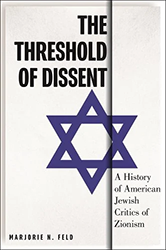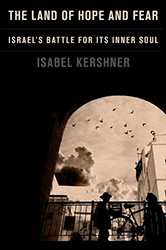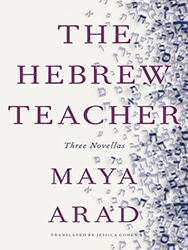One of the great misconceptions among Jews today is that Orthodox Judaism is static. As Yair Ettinger explains in his wonderful study, that can’t be further from the truth. Orthodoxy is a product of Judaism’s dialogue with modernity, and many of the most important movements today — such as feminism and inclusion of LGBTQ+ Jews in religious practice — bring about change in the traditional Jewish world.
Ettinger calls his book Frayed because Orthodox Judaism’s attitude toward change is not monolithic. Where some greet the challenge of modernity by opening doors, others close them, doubling down on stringencies. This can be seen most acutely in Ettinger’s discussion about the participation of Orthodox women in the army, where the issue finds incredibly forceful statements from both sides of the debate. There are also tensions surrounding women’s Torah education and religious participation, as well as questions about whether a synagogue should embrace queer couples seeking membership.
Throughout the book, Ettinger explains not just what these pain points are but why they exist. Most of them are concerned with the decentralization of power: whereas in the past there was one authority to turn to, now numerous authorities all claim the right to weigh in on hot-button issues. These include the dissolution of the power of traditional rabbinic authorities after disengagement from Gaza in 2005; the privatization of once-public institutions; the proliferation of the internet; and the embrace of urban living, which provides much more choice per square mile. Such changes have led to challenges to or rejections of Orthodoxy’s sole power to grant marriages and divorces, its autonomy over the Western Wall, and the Israeli rabbinate’s sacred cows — namely, Orthodoxy’s right to certify restaurants as kosher.
While Ettinger is a talented writer and researcher, able to tell the story of Orthodox Judaism’s fraying in a compelling and engaging way, he refrains from offering much in the way of solutions. One leaves the book with a sense that we are bearing witness to a schism in the movement, a slow-motion unwinding with few options for bringing its strands back together. This may be because there isn’t much that can be done, or because Ettinger feels that it is more his task to define the problem than to guess at ways it might be fixed. What we get, more than anything, is a sense that there are seismic changes happening in Orthodoxy. This period of time will give us a front-row seat to watch the future of traditional Judaism unfold.
Rabbi Marc Katz is the Rabbi at Temple Ner Tamid in Bloomfield, NJ. He is author of the books Yochanan’s Gamble: Judaism’s Pragmatic Approach to Life (JPS) chosen as a finalist for the PROSE award and The Heart of Loneliness: How Jewish Wisdom Can Help You Cope and Find Comfort (Turner Publishing) which was chosen as a finalist for the National Jewish Book Award.





